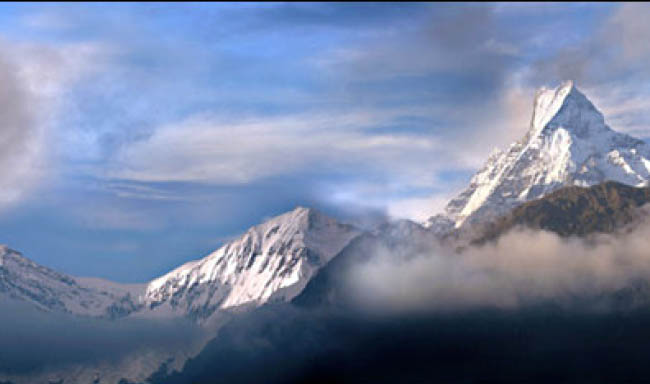KATHMANDU - More than 30 international and government experts from 10 countries have gathered in Nepal's capital to participate in two-day regional policy workshop on Adaptation Outlook for the Hindu Kush Himalaya region, which kicked off on Thursday.
The event hosted by International Center for Integrated Mountain Development (ICIMOD) in coordination with UN Environment Program and Norwegian organization GRID-Arendal will focus on mountain ecosystems and climate change adaptation.
Experts from Nepal, China, India, Myanmar, Austria, Thailand, Norway, Pakistan, Bangladesh and Afghanistan are assessing the progress of past and current interventions in the Hindu Kush Himalaya region.
The workshop is expected to build a foundation for a region-wide assessment of existing adaptation policies for different sectors, critical policy gaps and opportunities.
Tina Schoolmeester, an expert from GRID-Arendal Norway said, "We need joint efforts to protect, maintain and manage natural resources of this region, which is just not possible by an effort of a single country."
Making presentations on various possible chapters of the outlook, experts said that it is necessary to launch the outlook that will bring out adaptation strategies, policy gap analysis and priority areas for future action.
Nand Kishor Agrawal, Program Coordinator of Himalayan Climate Change Adaptation Program at ICIMOD said in his presentation, "The Adaptation Outlook will include vulnerability assessment, policy assessment, gap analysis and recommendations."
The Hindu Kush Himalayan region extends 3,500 km over all or parts of eight countries.
The most important region for South Asia and China, it is the source of ten large Asian river systems and provides water, ecosystem services, and the basis for livelihoods to a population of around 210.53 million people in the region. The basins of these rivers provide water to 1.3 billion people, a fifth of the world's population.
At a time when the global temperature is rising owing to climate change, hills and mountains, particularly the Hindu Kush Himalaya mountain system, have constituted places where adaptation, mitigation, and resilience are hallmarks of the people and the landscape.
Home » Afghanistan » Experts Assess Ecosystems, Climate Change Adaptation in Hindu Kush Himalaya
Experts Assess Ecosystems, Climate Change Adaptation in Hindu Kush Himalaya

